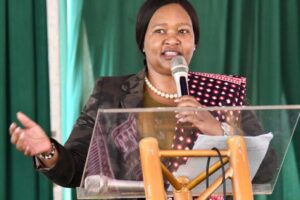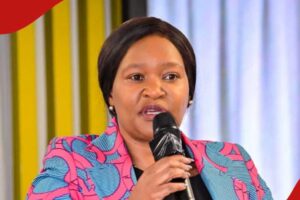[ad_1]

President Uhuru Kenyatta with ODM leader Raila Odinga when they launched a water project in Siaya.[Standard]
ODM leader Raila Odinga has challenged President Uhuru Kenyatta to share the dossier about the judges he rejected with the public.
Raila, in a statement on Saturday, said the country deserves an informed debate rather than a shouting match on this critical matter.
The African Union Special Envoy for Infrastructure said Kenyans deserve to know why various branches of their government take the positions they do on an issue critical to the nation such as the appointment of judges.
“I would therefore appeal to all the leaders of our three branches of government, the President, the Speakers of the National Assembly and the Senate, and the Chief Justice, to urgently seek common ground in their respective powers in order to achieve a more effective government of the people, by the people and for the people,” Raila said.
Raila said in doing this, each unit must avoid a theoretical pursuit of ideals that don’t serve the people.
“In the current stand-off over the refusal by the President to appoint six out of the 41 judges nominated by the Judicial Service Commission for superior courts, I challenge the Executive arm of government, to share with the Judiciary and the public the concerns and evidence that led to the rejection of the six,” he said.
While reiterating that Kenya cannot survive a supremacy war between its institutions, Raila said one of the doctrines on which the constitutional order is built around is that of the ‘Separation of Powers.’
He said the doctrine requires that the Executive, Legislative and Judicial functions of government are held by different institutions and that none interferes with the other.
“Before we gave ourselves the 2010 Constitution, we had gone through an era where this doctrine had been abused and the Executive branch of government had interfered with the functions of the other branches making democratic governance impossible,” said Raila.
Raila said through the 2010 Constitution, Kenya re-calibrated and pulled back to the democratic ideals it aspires to.
“Unfortunately, it now appears that in doing so, we have ended up with a catastrophic and extreme swing of the pendulum as our three branches of government try to find their respective positions in the constitutional order,” he said.
The former premier added: “Over the last decade, our three branches of government have been locked in a competitive relationship instead of complementary that has seen the nation swing from one absurd state of affairs to another.”
He noted that no one branch of government can help Kenyans solve their problems without the help of the other.
“No one institution can become the sole and undisputed liberator of the people of Kenya. Any attempt by any one arm of the government to outshine the others or to show that it’s the one that matters the most only works to hurt the common Kenyan and the interests of the nation,” he said.
According to Raila, the Executive needs to govern, but it cannot operate without resources which it can only get from the people through the authority of Parliament.
“On the other hand, the Judiciary pronounces what is legal and what is not. Yet it needs laws from Parliament to interpret, and the Executive to enforce its decisions,” he said.
Raila said in the current stand-off between the Judiciary and the Executive, this sense of the intertwined fate of the branches of government seems lost.
His sentiments come amid increasing pressure on President Kenyatta to appoint the six judges. Last week, Uhuru appointed 34, leaving out the six on grounds that they had integrity issues.
But immediate former CJ David Maraga came out and said the head of state cast aspersions on the integrity of six JSC nominees without backing his claims with evidence.
Maraga said the President turned down his bookings for a meeting with the speakers of both Houses to deliberate on the issues of separation of powers.
He said that despite the President saying he left out the six over [alleged] integrity issues, he (Kenyatta) did not furnish the ex-CJ or the JSC with any proof.
The Head of State had previously said the National Intelligence Service (NIS) conducted a background search on certain judges who had been listed for promotion, and that integrity concerns were raised about some of them.
But Maraga said NIS has no role in vetting judges, and that the President erred in his decision to reject six JSC nominees.
His sentiments were echoed by the current Chief Justice, Martha Koome, who said President Kenyatta has no way out but to appoint the six remaining judges.
Koome said it was a bitter-sweet moment for the Court of the Appeal because they have seven new judges but could not get the other six who were left out.
“As Chief Justice and the chairperson of Judicial Service Commission (JSC), all persons recommended for appointment by JSC must be appointed as judges,” she said.
She appealed to the president to appoint the remaining six judges to join their colleagues in various courts, four of them to the Appellate court.
[ad_2]
Source link
















